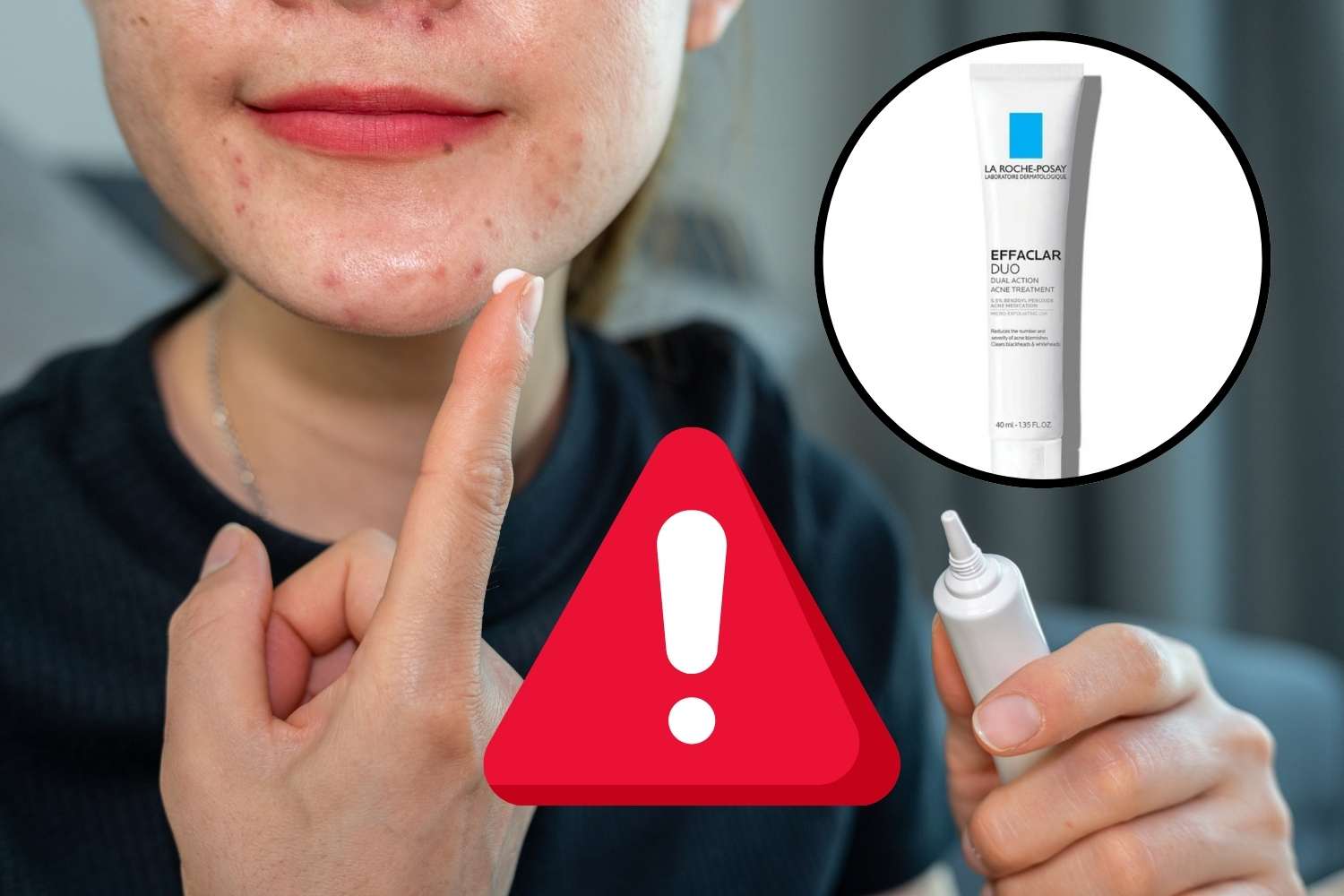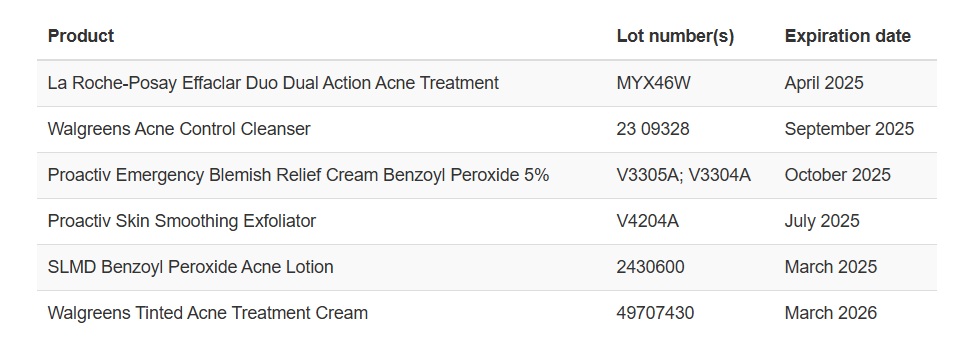In the US, L'Oréal has recalled the famous anti-acne cream Effaclar Duo by La Roche-Posay due to traces of carcinogenic benzene, detected in a batch of the product. The decision was made in collaboration with the FDA to protect consumers

L’Oréal has recalled all batches of its Effaclar Duo anti-acne treatment, sold under the La Roche-Posay brand, in the United States. This action was prompted by contamination with a chemical known for its toxicity and potential carcinogenic properties.
According to a statement from the FDA, the voluntary recall of some acne treatment products, including the well-known Effaclar Duo by La Roche-Posay (a L’Oréal brand), was due to contamination by benzene.
This decision came after the FDA, following independent testing of 95 products containing benzoyl peroxide, discovered elevated levels of benzene in six of them. The specific affected products and batches are listed below:

@FDA
Regarding L’Oréal, tests revealed that batch MYX46W of the Effaclar Duo Acne Treatment by La Roche-Posay contained benzene. As a precautionary measure, the company decided to withdraw the entire Effaclar Duo range from shelves in the United States.
L’Oréal also stated that an improved new formulation of the product will be available soon.
What is benzene and why is it dangerous
Benzene is a volatile aromatic hydrocarbon found naturally in petroleum, gasoline, and cigarette smoke. It is widely used in the chemical industry but is highly toxic to humans.
According to the U.S. Centers for Disease Control and Prevention (CDC), prolonged exposure or high concentrations of benzene can cause leukemia and other blood cancers, as well as damage to bone marrow and the immune system. For this reason, its presence in cosmetic and pharmaceutical products is considered extremely hazardous.
However, in the specific case of these acne creams, the FDA reassures:
Even with daily use of these products for decades, the risk of developing cancer due to exposure to the benzene present in these products is very low.
How benzene forms in cosmetics
Benzene is not an intentionally added ingredient in creams and cosmetics in general, but it can form as a byproduct of the decomposition of benzoyl peroxide, the active ingredient in anti-acne treatments.
Under certain environmental conditions, such as heat and prolonged exposure to light, benzoyl peroxide can break down and generate benzene.
Previous benzene contamination recalls
The alarm regarding benzene contamination in products containing benzoyl peroxide was raised by the independent laboratory Valisure, based in Connecticut. A year ago, Valisure detected the presence of benzene in several products and urged the FDA to take action to recall those found to be contaminated.
Valisure is an independent testing laboratory known for conducting chemical analyses on consumer products and detecting contaminants, such as benzene, in cosmetics and other everyday items, promoting consumer safety through its public reports.
Based on its tests, traces of benzene were found in several brands of:
-
Sunscreens
-
Dry shampoos
-
Hand sanitizers
-
Antiperspirants
Many of these products were later recalled from the market following interventions by the FDA and manufacturers, signaling that testing and controls on cosmetics (and more) can be vital tools for consumer protection.
The FDA will continue to monitor the issue and will release the full results of its tests in the coming months, including data and details on the analysis methods used to check products on the market.
